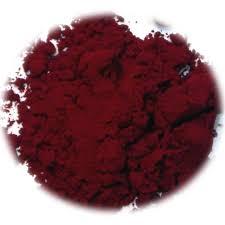Cochineal Extract Market: The Role of Insects in Sustainable Colorant Solutions

As sustainability takes center stage in global consumer markets, industries are increasingly turning to nature for solutions that are both eco-friendly and effective. The Cochineal Extract Market exemplifies this shift, with the cochineal insect (Dactylopius coccus) emerging as a key player in the production of natural red dyes. Extracted primarily from female cochineal insects, this crimson pigment, known as carminic acid, is highly valued for its stability, vivid color, and biodegradability—making it an ideal alternative to synthetic dyes.
The growing demand for clean-label products, coupled with a conscious move away from chemical additives, has positioned insect-based colorants like cochineal extract at the forefront of natural ingredient innovation. Whether in food and beverage, cosmetics, or textiles, the focus is now on sustainability—and cochineal extract is leading the way by demonstrating how insect-derived solutions can meet modern ethical and environmental expectations.
Insects as a Viable Resource in the Natural Dye Industry
The use of insects for dyes is not new—it dates back centuries. However, today's interest in cochineal extract is being revitalized by the urgent need to reduce the ecological footprint of commercial products. Unlike petrochemical-based synthetic dyes, which contribute to pollution and often raise health concerns, cochineal extract is derived from a renewable biological source that supports biodiversity.
Cochineal insects are predominantly cultivated on prickly pear cactus plantations in Peru, the Canary Islands, and other arid regions, where they thrive without synthetic inputs or extensive water use. This makes the farming process both low-impact and sustainable. Moreover, it offers economic empowerment to local communities involved in traditional cochineal harvesting.
The Cochineal Extract Market benefits from this unique intersection of sustainability and functionality. As brands align with environmental, social, and governance (ESG) goals, they are increasingly drawn to cochineal extract’s lifecycle advantages and low toxicity profile.
Industry Applications and Consumer Trust
In the food and beverage sector, cochineal extract is used to naturally color yogurt, fruit juices, candies, and ice cream. Its excellent heat and light stability make it a preferred choice for products that require visual appeal over extended shelf lives. Meanwhile, the cosmetics industry employs it in lipsticks, blushes, and natural skincare lines due to its vibrant hue and non-irritating properties.
Textile manufacturers, once heavily reliant on synthetic dyes, are rediscovering cochineal for naturally dyed fabrics. Its ability to bind with natural fibers like wool, silk, and cotton opens up new possibilities for sustainable fashion initiatives. As fast fashion faces scrutiny for its environmental toll, cochineal extract offers an ethical alternative that appeals to eco-conscious consumers.
These broad applications are supported by the dye's regulatory approvals in major markets. Authorities such as the U.S. FDA and the European Food Safety Authority have sanctioned cochineal extract for use in foods and cosmetics, further legitimizing its commercial viability.
Addressing Ethical Considerations and Market Challenges
While the sustainability profile of cochineal extract is impressive, it is not without ethical debate. As the extract is derived from insects, it may not align with vegan values. Transparency in labeling and sourcing remains critical to consumer trust. Brands that use cochineal are responding by clearly communicating the origin of their ingredients and emphasizing ethical sourcing practices.
On the supply side, challenges include the seasonality of cochineal harvests and fluctuating market prices. However, advancements in farming techniques and government support in major production countries are helping stabilize the supply chain and ensure consistent quality.
Conclusion
The Cochineal Extract Market is emerging as a model for sustainable innovation in the colorant industry. By harnessing the power of nature—specifically the cochineal insect—companies across various sectors are discovering a solution that meets environmental and consumer expectations alike. Its versatile applications, minimal ecological impact, and alignment with clean-label standards make cochineal extract an invaluable resource in the transition to greener manufacturing practices. As global industries continue to pivot toward sustainability, the Cochineal Extract Market is poised to see long-term growth, fueled by a growing appreciation for the natural and the renewable.
- Art
- Causes
- Crafts
- Dance
- Drinks
- Film
- Fitness
- Food
- Games
- Gardening
- Health
- Home
- Literature
- Music
- Networking
- Other
- Party
- Religion
- Shopping
- Sports
- Theater
- Wellness


